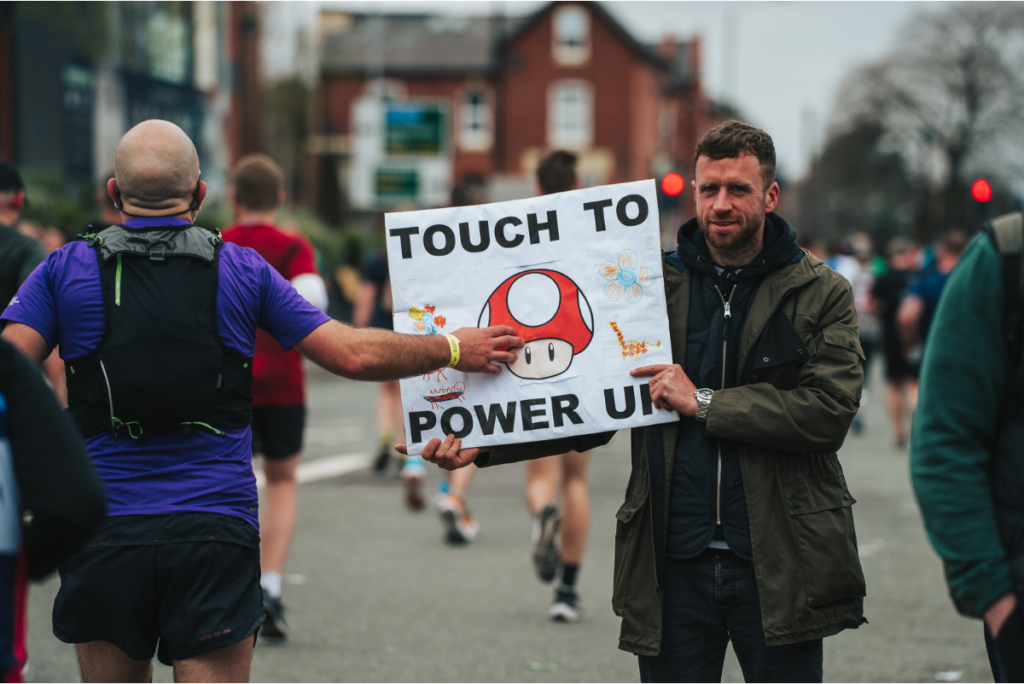5 THINGS TO DO 1 MONTH BEFORE A MARATHON
So, you’re running a marathon in a month’s time.
Lucky you; in approximately just 30 days, you’ll have achieved a feat of human resilience undertaken by few. You’ll have experienced a unique phenomenon of determination, passion and emotion – with a shiny medal and lifetime memories at the end of it all.
But let’s not romanticise marathon running too much; with one month to go, you might be tired, twitchy or downright terrified of the challenge ahead.
4 weeks out is crunch time in your preparation: here’s what to tick off your marathon ‘to-do list’ during this time, to make sure all your training pays off.

1. Complete your longest run
Your longest run should take place 3-5 weeks before event day, so if you haven’t reached your maximum continuous mileage, plan to do so now…
Bear in mind that your longest run may look different to someone else’s; while a more experienced runner may do more than 20 miles a few weeks before event day, a first timer may do 18 or less. Some training plans also measure in time, rather than miles or kilometres. See our training plans for suggested long runs here.
Never try to get these miles in too close to the event, for example, 2 weeks before.
2. Plan your taper
2-3 weeks before the event, you should start tapering your training by decreasing mileage to prepare your body for event day.
Although many people look forward to the taper period as a time to relax before the event, it requires discipline and can be tricky to get right. Some people also find tapering difficult as they are so accustomed to training and can’t ‘sit still’ when rest is required but it is important to take the taper seriously.
You may wish to plan some relaxing and social activities to take your mind off the event and de-stress; a walk with a friend, a yoga class or gentle swimming are all good options.

3. Prioritise your health
Look after yourself in the lead-up, the last thing you want to get sick right before the big day.
“Easier said than done”, we hear you say.
OK, while we can’t control the lurgies our toddlers return from nursery with, or what our colleagues bring into work, there are things you can do to minimise your chances of getting sick, with number one being adequate sleep. As sleep enables our body, including our immune system, to function effectively, we can optimise our snooze time through limited screen time, avoiding stimulants such as coffee and alcohol and keeping stress low where possible.
You should also pay close attention to what you are eating, making sure to eat a colourful variety of fruits and vegetables with a variety of nutrients, plus plenty of water. You may also bear in mind getting enough vitamin C and zinc, which supports the immune system.
4. Stay in the loop
You’ve been thorough and paid close attention to detail in your training; now do the same in the pre-event communications about event day (it really is in your best interests!)
Make sure you’re in the loop with the key information about your wave and start time; bag drop facilities; water stations and other features of the course (such as the route) as well as your travel options on event morning.
Being clued up with the event knowledge will take away any last minute stress and allow for a smooth event day experience, so keep your eye on your inbox and check out your organisers website.
Participants of the 2024 adidas Manchester Marathon can find the essential event information in our Participant Guide here.
5. Consider your goals
Finally, one month to go is a good time to reflect on your training and be realistic about your goals on event day.
Feeling super strong? Maybe you can be more ambitious about your time goal… See what that ‘race pace’ feels for part of your next run.
Equally, if you know that your training hasn’t gone to plan, it may be a good idea to manage your expectations. If your previous target was time-based, you could consider adjusting your goal to really enjoy the event (for example, by engaging with the crowds and entertainment on the course).
Lastly, it can also be useful to have a ‘Plan A’ (best outcome), ‘Plan B’ and ‘Plan C’, depending on how you feel the week before or day of the event. That way, you’ll be pleased with every outcome.

Good luck to everyone taking on a marathon, from first timers to ten-timers, we hope you ace it.

